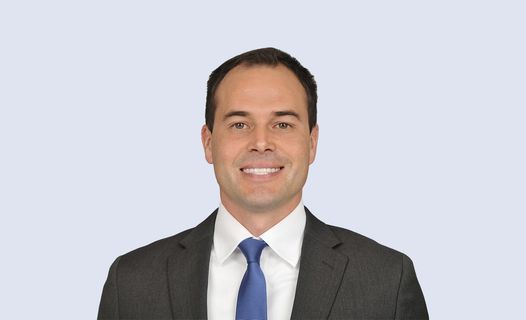In a somewhat unusual ruling last week, a California Court of Appeal announced that its previous February 2015 decision in the case of Gerard v. Orange Coast Memorial Medical Center, which partially invalidated healthcare meal waivers, was wrong. Accordingly, as a result of the March 1, 2017 ruling, healthcare employers in California will not face retroactive liability if they used waivers prior to October 5, 2015.
This follow-up decision in the Gerard litigation serves as a good reminder for healthcare employers to revisit their waiver policies and practices to ensure they have implemented enforceable healthcare meal waivers with all possible employees.
Brief Backstory: Earlier Ruling Leads To Legislative Fix
The California Court of Appeal issued its first decision in this case over two years ago in February 2015. At that time, the court concluded an Industrial Welfare Commission (IWC) order was partially invalid to the extent it authorized second meal break waivers on shifts longer than 12 hours.
That decision spurred the California State Legislature into action and resulted in SB 327, which Governor Jerry Brown signed into law on October 5, 2015. As enacted, the legislation confirmed that employees in the healthcare industry who worked shifts longer than eight hours could voluntarily waive their right to one of their two meal periods, even where shifts lasted longer than 12 hours.
Because of SB 327, the only issue on appeal in Gerard was whether such waivers were valid if used prior to October 5, 2015. The plaintiff argued they weren’t, reasoning that Wage Order 5, section 11(D) – the authority relied upon for such waivers – violated Labor Code section 512, which limits meal break waivers to shifts lasting no more than 12 hours and only allows employees to waive their second meal break if the first was actually taken. Last year, the California Supreme Court sent the case back to the appellate tribunal to resolve this issue and to reconsider its earlier decision in light of SB 327.
On this second go-round, the appellate court found that Wage Order 5, section 11(D) was valid at the time it was adopted, because at that time the IWC was allowed to adopt rules in the wage orders contrary to Labor Code section 512’s break rules.
Which Employees Can Utilize the Waivers?
Wage Order 5 defines the healthcare industry as including hospitals, skilled nursing facilities, intermediate care and residential care facilities, convalescent care institutions, home health agencies, clinics operating twenty-four (24) hours per day, and clinics performing surgery, urgent care, radiology, anesthesiology, pathology, neurology or dialysis. The following employees at these facilities can utilize the waivers:
- Employees providing patient care;
- Employees working in a clinical or medical department, including pharmacists dispensing prescriptions in any practice setting; or
- Employees working primarily or regularly as a member of a patient care delivery team.
In addition to the above group of employees, licensed veterinarians, registered veterinary technicians, and unregistered animal health technicians providing patient care can utilize the waivers.
Voluntary, Written Waivers
In order to be considered valid, the waiver must be in writing and signed by the employee and an authorized company representative. You cannot force your employees to utilize the waivers. It is important to present the waivers to employees as something they can either accept or reject.
Further, the employee (or the employer) may revoke the waiver at any time by providing at least one day’s written notice. Although other groups of employees need not sign a written agreement under the more general Section 512 meal waiver and Wage Order requirements, such a signed written agreement, with revocability language, is recommended for all written waivers.
Healthcare Waivers Provide Scheduling Flexibility
The biggest benefit for employees and employers is that, unlike other industries where employees must take their first meal break before waiving the second, employees utilizing the healthcare meal waivers can waive either the first or second meal break. The significance of this difference cannot be overstated.
Qualified employees in the healthcare industry who sign such waivers do not need to take a meal break within their first five hours of work. Instead, they must take one of their two meal breaks prior to the end of the tenth hour of work. This aspect of the waiver provides much needed flexibility for employees on 12-plus-hour shifts. For this reason, it is important to ensure the waivers do not have language limiting the waiver to the second meal break or to shifts lasting no more than 12 hours.
Take Action
Although this recent appellate court ruling may still be appealed to the Supreme Court on the issue of whether employers face liability for using these waivers prior to October 5, 2015, an appeal will not affect the fact that waivers currently in use are valid. Healthcare employers should assess their past practices and previously used waivers to ensure all applicable employees have entered into healthcare meal waivers that provide the much-needed scheduling flexibility for the industry.
For more information, contact the author at DAmaya@fisherphillips.com, any member of the Fisher Phillips Healthcare Practice Group, your regular Fisher Phillips attorney, or one of the attorneys in any of our California offices:
Irvine: 949.851.2424
Los Angeles: 213.330.4500
Sacramento: 916.210.0400
San Diego: 858.597.9600
San Francisco: 415.490.9000
This Legal Alert provides information about a specific new court decision. It is not intended to be, and should not be construed as, legal advice for any particular fact situation.


